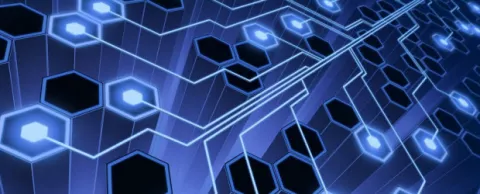
The Internet of Things is widely seen as bringing new services, efficiencies and opportunities that will significantly change how commercial and industrial operations conduct their business—and help cities become smarter and more connected as they work to meet their goals of livability, sustainability and economic growth. Our story shares market trends and forecasts from industry observers on what we can expect in the near future, and why they matter now. — Doug Peeples
One forecast predicts the smart cities market will nearly triple from its 2013 level to $1.4 trillion by 2020. And another says the Internet of Things in smart cities market will grow from almost $2 billion in 2015 to $147.5 billion by 2020. Yet another anticipates the number of Internet-connected devices in smart cities alone to grow from about 1.2 million in 2015 to 3.3 billion in 2018.
That's a lot of numbers, and they change over time and vary from company to company depending on the methods they use. But what those numbers say is analysts studying the IoT industry and smart cities see continued growth, and ultimately, a dramatically high level of connectivity between the physical and digital worlds.
As Doug Davis, senior VP of Internet of Things for Council Associate Partner Intel, put it during an interview with Venture Beat, "We think this is going to grow to 50 billion devices and trillions of dollars of economic impact. It will change the way we live and work. As we go out talking, we see more companies investing in it. We are making a transformation from a PC-oriented company to one that powers things that are connected to the cloud and everything necessary to make that happen." Davis could have been speaking for any number of companies involved in smart cities and IoT.
Continuing and emerging trends
A number of trends in smart cities and are continuing and new ones are emerging. And IoT is a central component in all of them.
- Cities continue to struggle with limited budgets and see IoT combined with information and communications technology as a solution to increase operational efficiency, enhance cooperation between city departments and services and do it in a cost-effective way. Vendors and cities are exploring new funding options.
- Smart LED street light networks remain a popular point of entry for cities embarking on smart cities enhancements and upgrades because they can be used as a platform and adapted to a variety of applications from transportation to pollution monitoring and public safety with the addition of sensors and video cameras. And they can provide immediate cost savings.
- Smart buildings are an emerging option. As we reported recently, focusing on smart buildings offers the potential for even more savings than LED lighting, particularly if those buildings are connected to a smart electric grid.
- Renewable energy is another key continuing trend as more and more cities see renewables as a way to reduce dependence on fossil fuels and improve their environment and livability—and meet their citizens' demands for clean energy.
- Transportation and mobility has become a critical area of concern for cities as populations grow and traffic congestion, parking problems and other issues affect city livability, economy and competitiveness.
Plenty of choices
Another major trend in IoT and smart cities is the proliferation of startups and established companies zeroing in on IoT platforms and applications. Council Lead Partners AT&T, Cisco, GE, IBM, Microsoft, Oracle, Qualcomm, SAS Institute and Telit and Associate Partners Intel and Siemens are among the established companies that have expanded into IoT and smart cities or are in the process.
Also: national smart city policies
National smart city policies will be developed by at least 20 of the world's largest countries by 2017. Those policies will pertain to funding priorities and technical and business guidelines, according to research by Council Associate Partner IDC.
Doug Peeples is a Portland, Oregon-based writer specializing in technology and energy. Follow @smartccouncil on Twitter.



